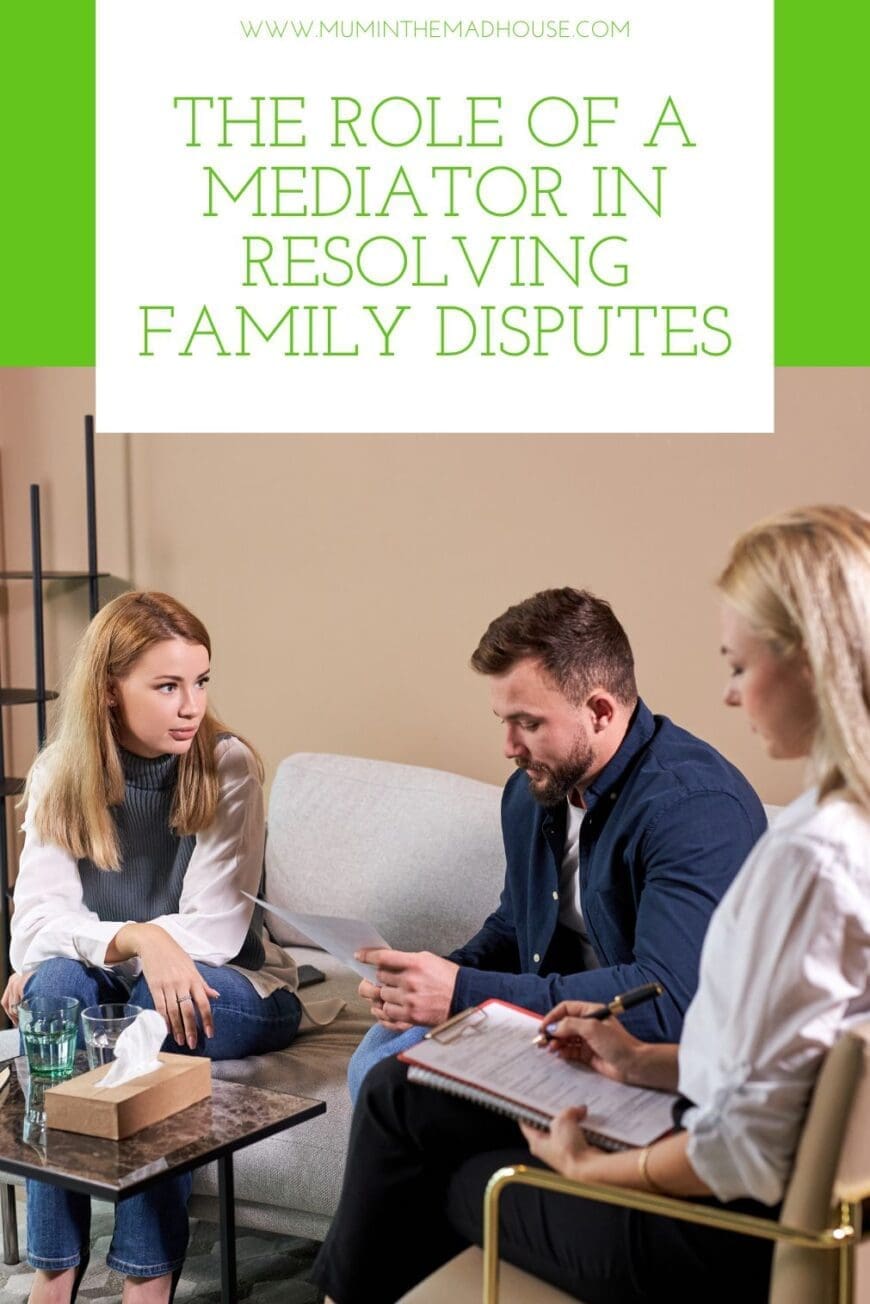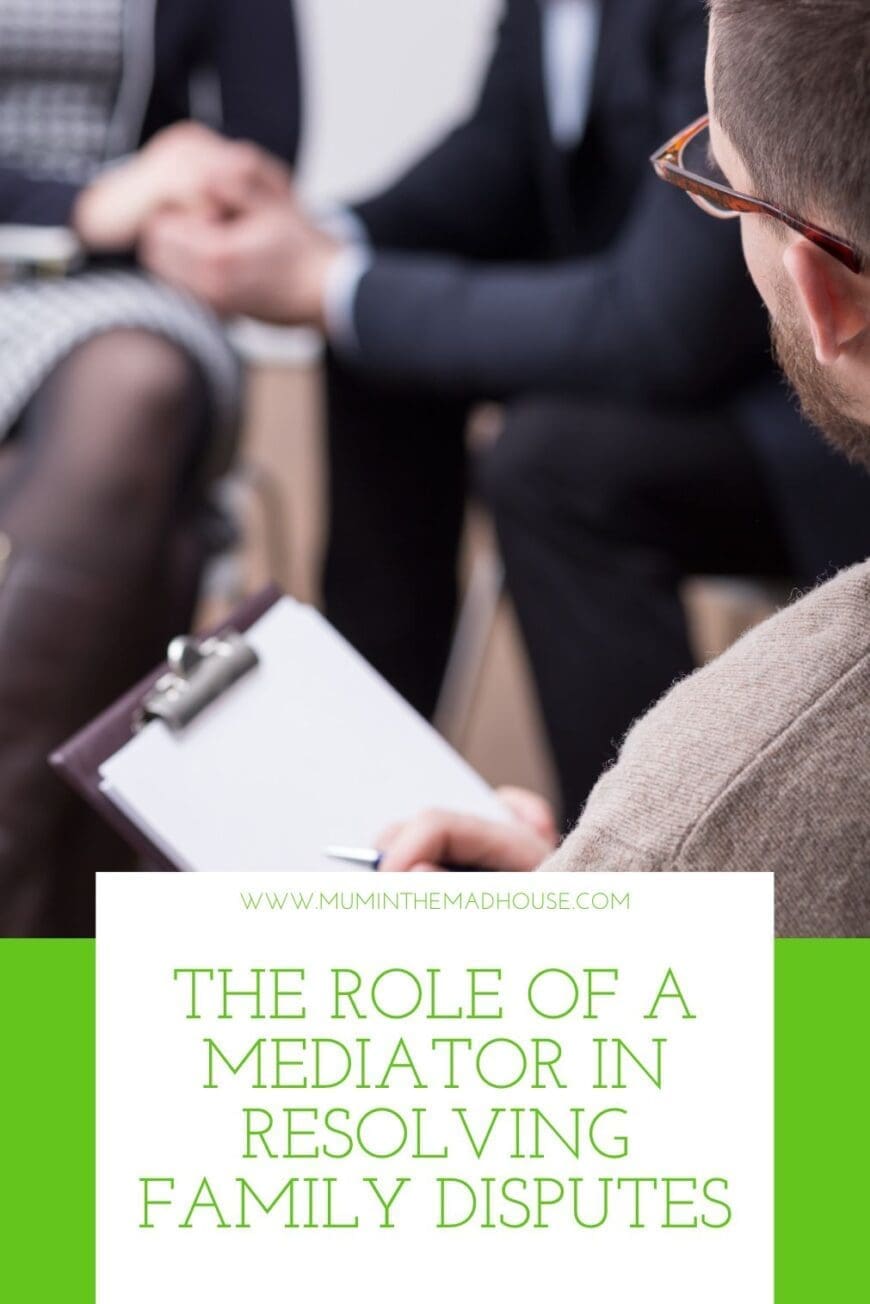Family disputes are an unfortunate reality that many individuals and families face at some point in their lives. These conflicts can be emotionally draining and have a significant impact on the overall well-being of everyone involved. While seeking legal representation is often the first course of action, there is another approach that can provide a more amicable and cost-effective solution: mediation. In this blog post, we will delve into the role of a mediator in resolving family disputes and explore how they can facilitate constructive communication, foster understanding, and help families reach mutually beneficial agreements.

Understanding Mediation
Mediation is a voluntary process that involves a neutral third party, known as a mediator, who helps disputing parties communicate effectively and find common ground. Unlike a judge or an arbitrator, a mediator does not make decisions for the parties involved. Instead, their role is to facilitate dialogue, promote understanding, and guide the participants toward reaching a mutually acceptable resolution.
The Complementary Role of Family Lawyers
While mediation focuses on resolving conflicts through non-adversarial means, it is important to acknowledge the complementary role of family lawyers in the process. Family lawyers provide valuable legal expertise and guidance, ensuring that participants are well-informed about their rights, obligations, and the legal implications of any agreements reached. So if you are dealing with separation, it’s important to seek legal advice from a lawyer who specializes in family law because this area of law can be very complex for those unfamiliar with it, as seen at https://sagefamilylawyers.com.au/ website. So, make sure to find the one whose expertise and personality fit you.
The Mediator’s Neutral Stance
One of the essential aspects of mediation is the mediator’s neutrality. A skilled mediator remains impartial and does not take sides. They create a safe and non-judgmental environment where all parties can express their concerns and perspectives without fear of criticism or bias. By maintaining a neutral stance, a mediator can foster an atmosphere of trust, encouraging open and honest communication.
Facilitating Effective Communication

Page source: https://pixabay.com/photos/woman-speaking-working-speech-5480507/
Effective communication lies at the heart of successful mediation. A mediator helps family members express their thoughts, feelings, and needs constructively, ensuring that all parties have an opportunity to be heard. By actively listening and asking insightful questions, the mediator encourages a deeper understanding of each person’s viewpoint. Through this process, miscommunications can be clarified, and underlying issues can be addressed, paving the way for resolution.
Promoting Understanding and Empathy
Family disputes often arise from a breakdown in understanding and empathy. Mediators excel at helping individuals step into each other’s shoes and see the situation from different perspectives. By encouraging empathy and fostering understanding, a mediator helps create an environment where parties can explore shared interests and work towards finding common ground. This approach often leads to creative solutions that address the underlying needs and concerns of all family members involved.
Tailoring Solutions to Unique Family Dynamics
Every family is unique, with its own set of dynamics, values, and priorities. Unlike litigation, where a judge imposes a decision, mediation allows families to maintain control over the outcome. With the assistance of a mediator, parties can craft tailor-made solutions that reflect their specific circumstances and individual needs. This flexibility promotes a sense of ownership and increases the likelihood of long-term cooperation and positive relationships.

In conclusion, the role of a mediator in resolving family disputes is instrumental in promoting open communication, understanding, and cooperation. Through their neutral stance, facilitation of effective dialogue, and promotion of empathy, mediators empower families to take control of their solutions and achieve outcomes that meet their unique needs. By considering mediation as a viable alternative to litigation, families can foster healthier relationships and work towards a brighter future together.
